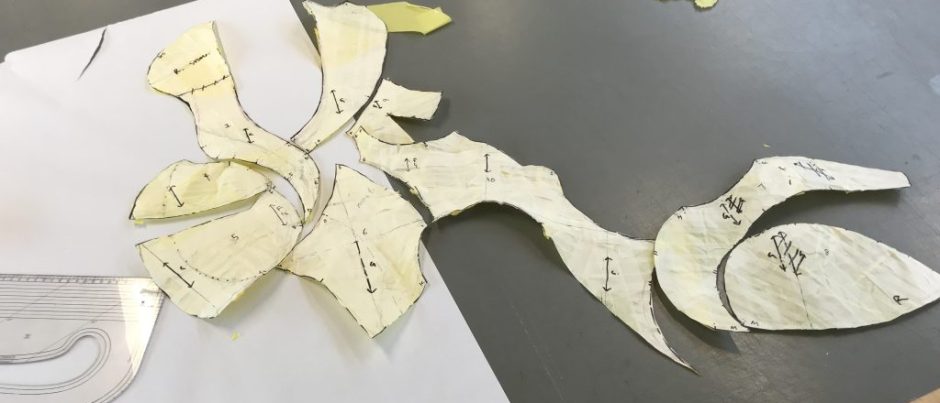I am interested in using interviews within my research. Using questions to guide a student through a process is familiar to me, and aligns with my approach as an educator, so I am interested in learning more about interviews as a research method, and how this differs from the form of dialogue that happens within a technical tutorial or studio chat.
Reading ‘Views on Interviews: A Skeptical Review’ – Alvesson, 2011
Alvesson looks at three major positions in relation to interviewing, and mixed positions: neo positivism, romanticism, and localism, and combinations and reinterpretations of these.
Neo-positivism is a clinical, scientific approach in which the interviewer is trying to remove any variables that could influence the outcome. This feels quite scientific to me. Alvesson makes it clear that they think this is quite a reductive way of conducting interviews, which can never truly be standardised or objective or neutral. For me, this does not seem to make sense as an approach, the subjects I am interested in researching being related to personal experience and emotion.
Interactive Rationalism is a reinterpretation of neo- positivism, which “Recognised social complexity and embraces ‘soft’ and ‘flexible’ technical measures in dealing with the problem of how to maximise reliable responses” (pg 5), but like neo-positivism seeks and believes ‘accurate’ conduct and interpretation of an interview as a plausible and ideal.
Romanticism uses rapport, familiarity and trust between interviewer and interviewee to gain authentic expression and “trustworthy talk” (pg5) from the interviewee, which is seen as more valuable and rich. It embraces storytelling, emotion, and empathy. Within this sub-heading, Alvesson also talks about ‘active interviewing’, in which the interviewer aims to construct knowledge collaboratively with the interviewee, also becoming a ‘participant’. Versions of this approach work within ideologies in feminism – “like the minimisation of power differences, empathy, care, sensitivity and other good things” (pg 6), with consent and without invading privacy or crossing boundaries. The concept of an active and flexible interviewer appeals to me. It seems to sit well with wider research concepts I believe lean towards a social justice approach – for example, the use of a positionality statement, and acknowledgement of the complexity of intersectionality. As perviously stated, the emotional, human element of the topics I would like to explore sit well with this approach.
However, I think that for me, it will depend on the data I am trying to collect. In any instance, I think balancing some systematic approaches and frameworks is useful, but allowing for flexibility, complexity and difference is valuable too. People are not simple, and neither are our interactions, and it would be arrogant to think that systems and control can ever replace to recognise and consider that to some degree. I should perhaps consider using multiple forms of data collection – both qualitative and qualitative, to compliment one another.
Localism “…emphasises that interview statements must be seen in their local, situation-specific context” (pg. 9). They are social encounters, designed and created to produce “situated…morally adequate accounts” (pg. 9). Alvesson critiques localism as trading “relevance for rigour” (pg. 10). However, again, my research is very specific to the context that I am working in, so I wonder if in this instance, this approach is useful. Interviewing colleagues within my department, who do the job of supporting performance students in costume, and students who I know spend time in costume of have expressed some interest in design would produce richer conversations. However, this may then produce biased results.
Mixed positions are seen as, potentially, a solution to holding combinations of these opposing approaches. The interview results can be seen as “valid knowledge-production” (pg. 11), while also taking into account the wider social context.
However, looking at some examples of situation-specific interviews, Alvesson critiques the use of a less structured, romantic approach, which allows too much room for the interviewer to unknowingly steer the interviewee, and therefore undermine the idea that it the interviewee is creating and defining meaning.
Beyond this, the motives of the interviewee are considered. It is impossible to know whether an interviewee is being open, truthful, and authentic, or if they feel motivated by other factors to perform an idea of what they think they should say, or because there is something they wish to emphasise or speak to, a political motivation. The issue of communication is also considered – the mode of conversation/dialogue/speech is not necessarily the best way for someone to communicate their thoughts, ideas, feelings, or knowledge. Conversely, the opposite may be true.
Class is brought into this, and consequently an area of great personal interest to me in relation to pedagogy. Those who have access to higher education, and are practiced in expressing themselves through words, are going to ‘perform better’ than those whose knowledge is expressed through practice. Interviews, essentially, favour a particular type of person, and in this, traditional forms of interview could be seen as socially unjust, and elitist.
Navigating the complexity of this can be tiring – it is suggested that two researchers interviewing one person (one in dialogue the other a more distanced observer) could be a way of lessening the impact of this. However this imbalance of 2:1 could create additional anxiety for the interviewee. Perhaps instead of interviewing students, I could carry out a focus group, to remove some of the intensity of this. Or, explore the use of non-verbal communication (visual aids/imagery perhaps).
Alvesson concludes by stating their position as one of balance, nuance and moderation, in which “careful interpretation in which ambiguity and the impossibility of finding an ultimate truth or a best interpretation are acknowledged” (pg. 24). Alvesson suggests that “a set of reference points for thinking through the interview situation and its use in interpretation” is needed.
References
Alvesson, M. 2011. Views on Interviews: A Skeptical Review. In: Interpreting Interviews. London: SAGE Publications Ltd. pp. 9-42 Available at: <https://doi.org/10.4135/9781446268353> [Accessed 6 Oct 2024].
